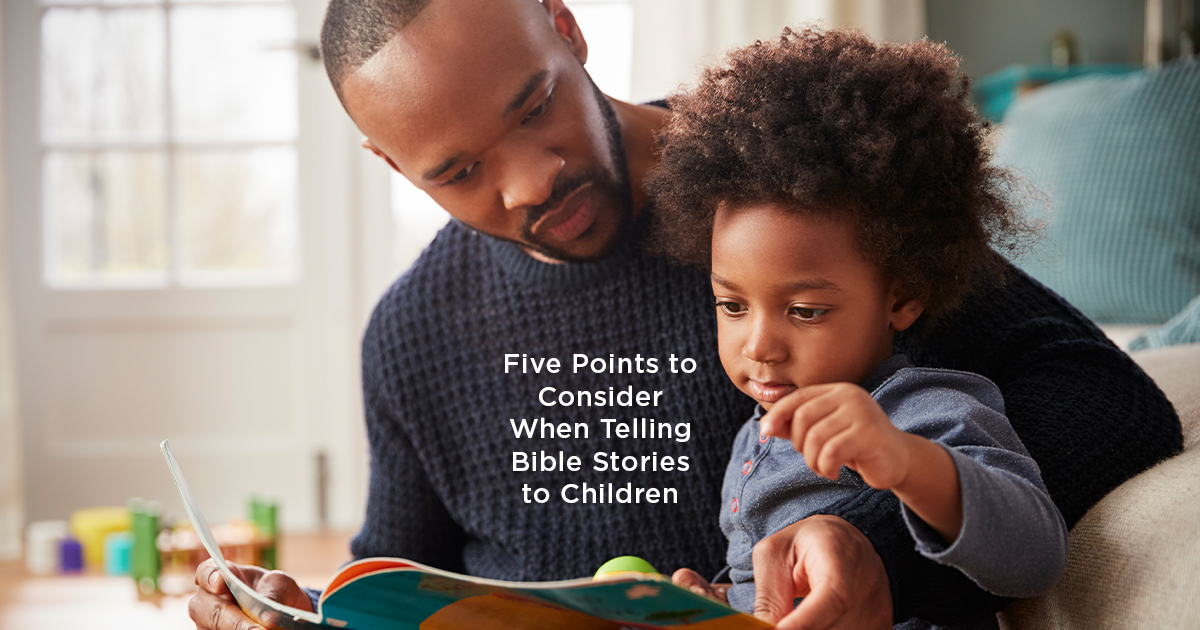
When God made us, he hard-wired us to listen to, tell, repeat, create and absorb stories. It’s no surprise then, that when our creator chose to reveal himself to us, the book he gave us—the Bible—is packed full of profound, intriguing and emotionally-charged stories.
And when he sent his son into the world as his ultimate revelation—guess what? He was a storyteller who kept vast crowds entranced by the powerful stories that we read in the Gospels.
The world our children live in is also full of stories. Every movie they watch, every cartoon on TV, every comic book or novel they read uses narrative to engage the senses and stir our emotions, and to teach us life lessons, or pose difficult questions.
Writing stores for children is challenging. Especially Bible stories. Many of the most famous Bible stories—especially ones that involve animals—are actually stories that have serious themes to them. We love to tell the story of Noah and the animals in the ark, but the whole of Genesis 6-8 is about a massive worldwide judgment by God on the evil and sin of mankind. Jonah is also about judgment, but has an overtone of deeply disturbing racism—as God’s prophet is taught that his mercy extends even to the Ninevites who Jonah so deeply despises.
When we are faithful to Scripture, the stories we tell from the Bible have the power by God’s Spirit, not just to move us, but to save lives for eternity.
It would be so easy to write the story of Noah without judgment; and Jonah without the racist elements in them—and many books do that. But if we want to remain faithful to God’s word, somehow, a writer has to work out how to express these truths in ways that are age-appropriate for little ones.
This was my aim when I settled down to write the Very Best Bible Stories series. I work to five principles, which are a good guide for selecting books to read to your children, and if you are a storyteller yourself, then these might help you.
Be Faithful: Do the hard work of really understanding what the passage is about, and then working out how to express that in ways that are helpful to the age and stage of the children you are writing for.
Be Historical: A child’s world is full of imaginative stories, so it is really important to help them see that the stories we relate from Scripture are in a different category. When I tell a Bible story to chidlren, I always start by saying that this is “a true story from the Bible.”
Be Dramatic: Any good story has tension, jeopardy or a problem to solve. Tell the story so that the children feel the tension—so that the final solution comes as a relief to them.
Be Colorful: Paint pictures with words that inspire the imagination. One great way to do this is reference as many senses as you can. Not just what something looked like, but describing the smell, the feel and the taste of something makes it more real and less like a fantasy.
Be Fun: Children love to laugh—and there is comedic value in many Bible stories. Telling stories with funny voices, or pointing out how someone has made a ridiculous choice is perfectly legitimate way to bring life to a story.
We need to put in extra effort to make Bible stores stand out as they are up against powerful competition from Disney and Studio Ghibli. They produce polished, powerful and professional stores that are emotionally moving. But when we are faithful to Scripture, the stories we tell from the Bible have the power by God’s Spirit, not just to move us, but to save lives for eternity.
The Very Best Bible Stories series consists of faithful and fun retellings of classic Bible stories that will introduce preschool children (ages 2-4) to truths about God.